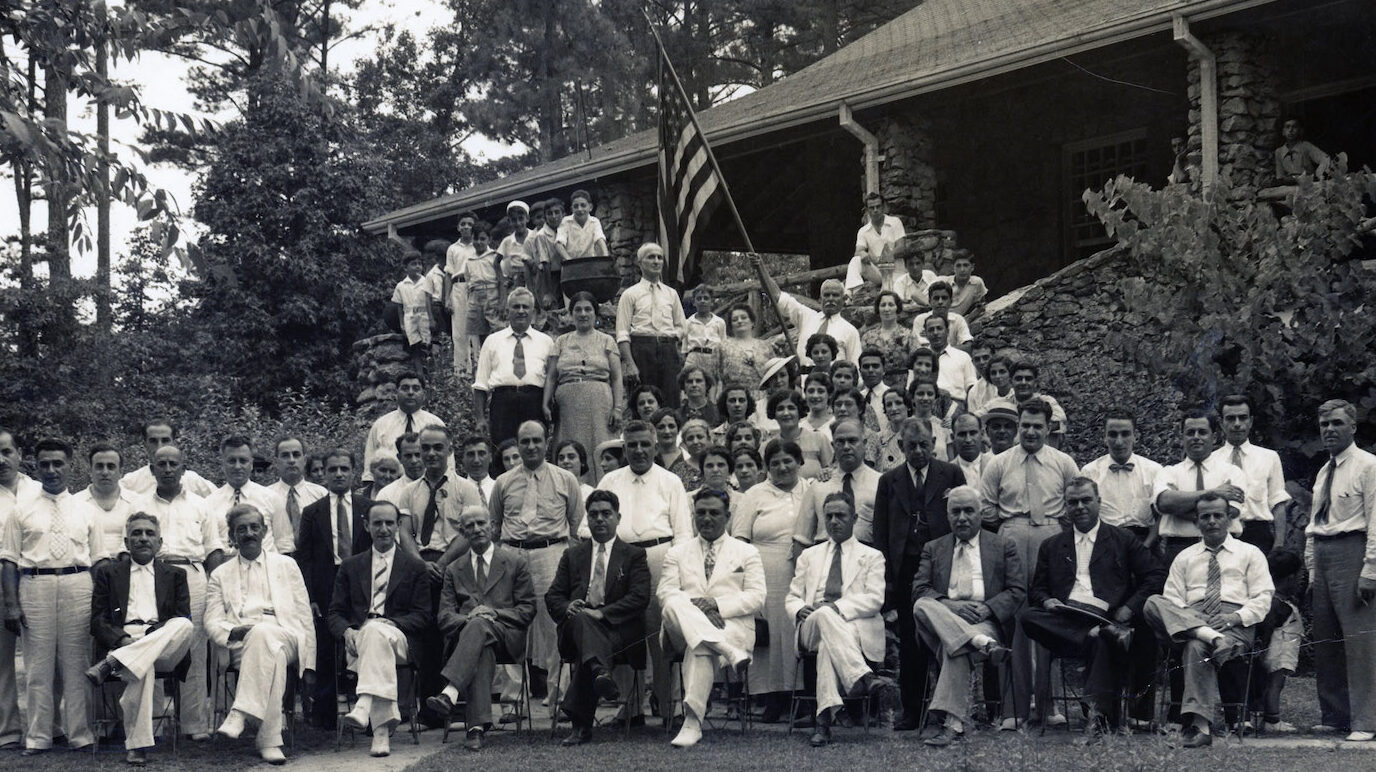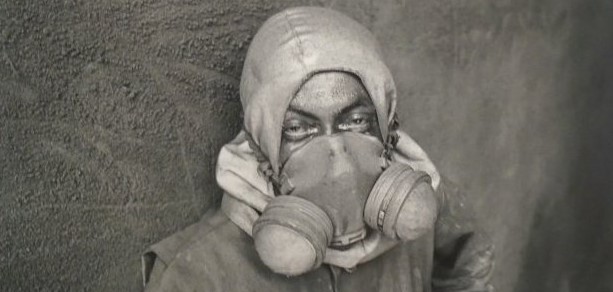Diasporic Cartographies: An Interview with Nathalie Handal
This post is written by Dr. Elizabeth Saylor, Post-Doctoral Fellow at the Khayrallah Center for Lebanese Diaspora Studies. This piece has been adapted from a longer interview with poet Nathalie Handal, co-authored with Dr. Lily Balloffet.
To read the full interview, please see Vol. 4 No. 1 of Mashriq & Mahjar: Journal of Middle East and North African Migration Studies.

The poet, playwright, travel writer, and intellectual Nathalie Handal was born to a Palestinian family from Bethlehem, raised between France, Latin America, and the Middle East, and educated in Asia, the United States and the United Kingdom. Handal’s creative work reflects her nomadic upbringing and draws inspiration from multiple languages and cultures, making her one of the most important voices of the Arab Diaspora. A weaver of words and cultures, and a wanderer among languages, landscapes, and art forms, Handal is an artist whose work so thoroughly embodies the migratory and diasporic experience. However, as she states in the following interview, “although the atlas of my being is the globe, my gaze is always East.” Handal currently lives in New York City, where she teaches at Columbia University.
Interview with Nathalie Handal
ES: How does your rich multilingual upbringing – between French, Spanish, Arabic, Italian, Creole, and English, and the influences of Persian, Russian, Greek and Armenian – enter into your creative process?
NH: It taught me the art of translation. Not only linguistic but cultural translation. Languages are openings that make visible the shadows and breaths of other places and people. But it’s also this rich multilingual space that made me acutely aware of my displacement and its disturbances. In what language does an aspiring writer write in if without a mother tongue? And if I was to choose from the four languages that roamed around me most – French, Spanish, Arabic and English – which dialect was I closest to, which accent did I inhabit more easily, which literary space would I belong to? My French is a mélange of Parisian, French Caribbean, Swiss and of le Midi (the South of France). My Spanish is infused with the cultures of Madrid and Andalucía, Mexico and Dominican Republic. My Arabic is a Levantine blend steeped in Bethlehemite colloquialism. My English informed by American, British, and International School English – which has its own linguistic culture. Fortunately, I didn’t have to make such a challenging choice. English came to me, and I greeted it. When I started publishing, I nurtured my American English because it allowed me to accommodate my other languages; house the various linguistic, cultural and emotional worlds my poems and stories come from. Today, when a verse comes to me in Arabic, French, Italian, etc., it naturally translates itself into English on the page.
I continue to look for connections between languages—Arabic and Persian, Arabic and Spanish, Italian and French and so forth. After all, no language is untouched, they all carry the remains of other civilizations and conquests. And it’s in these connections that I am reminded of our global gathering.
Exile is an unsolvable grief. But with language my hyphenated mother tongues have found a way to create an original language, and isn’t that the dream of the writer.
LB: Can you speak to the role of travel/mobility in your writing process?
NH: Life in motion is all I’ve known. I was conceived in Lausanne, Switzerland, my mother spent her pregnancy on the road in Europe namely France, Italy and ex-Yugoslavia, and somehow made her way to New York before having me in Haiti. I was raised in Latin America, France and the Arab world, educated in the United Kingdom and the United States, and have moved between cities in Asia, the Middle East, Europe, Latin America and the United States most of my life. Perhaps most significantly, I’ve always divided my time between several cities. And although the atlas of my being is the globe, my gaze is always East.
I have been torn between two verses, one by Ibn ‘Arabī, “If you engage in travel, you will arrive,” and the other by the Cuban-born Mexican-Lebanese writer Fayad Jamís, “Mi alma es una gran bahía donde siempre hay un barco que se va” (My soul is a large bay where there’s always a boat leaving). What is arrival and departure? What is travel? What is loss? And where is the body and soul in theses spaces? To arrive has mostly meant to discover. The farewell waves in exile have become symbolic of boats vanishing. These boats have become ships in my imagination, every one of them representing a loved one and the immense void their absence has left inside of me. And I understand now, if we think we can achieve resolve with the question of displacement and identity, we will feel defeated. The aim is to maintain equipoise as if we were playing a dangerous sport.
Movement is creativity. It is in the imprecision of travel that I find the precision of language.
ES: As artist, academic, activist, and editor of the landmark anthology, The Poetry of Arab Women (2001), gender resides at the core of your work. How has your perspective on gender and feminism evolved over time, and what directions do envision for the future?
NH: There is no successful society without feminists, and feminists are men and women who believe in human rights, who acknowledge the inequality, injustice and exclusion women endure, and participate in challenging and changing the system. There is no culture without our femininity and intellect, and yes, they are not mutually exclusive. Women are part of the equation not a shadow in it. Feminism is empathy, equality, evolution. It’s the big beautiful beat to liberation for all of us.
As a child, I saw strength in the laughter, hum, humility and grace of women; as a young girl, I found beauty in the word believe that women kept delivering to me; as a young writer, I met a woman who told me I can’t be feminine, talented and intelligent, and then I met a thousand other women who taught me how to challenge the violence history has inflicted on the image of what a woman can and cannot be – as women are boundless; as a young adult, I witnessed daily what women made happen even if men got the credit; as a writer in the middle of my life, the bravest words and worlds I hear and experience are those women offer; as a woman, I am humbled by the simplicity, in other words, the widest range of beautiful complexity, that women offer me every day with their capacity to love and endure and build and be.
LB: To us, your writing seems to co-inhabit the worlds of art, cultural production, and the academy. Do you see your work as conversant with the interdisciplinary frameworks of diaspora/migration studies?
NH: Every action and motion, every word I have written has been a rumination of, a conversation with, has been etched in, the migratory and diasporic experience.
- Categories:


